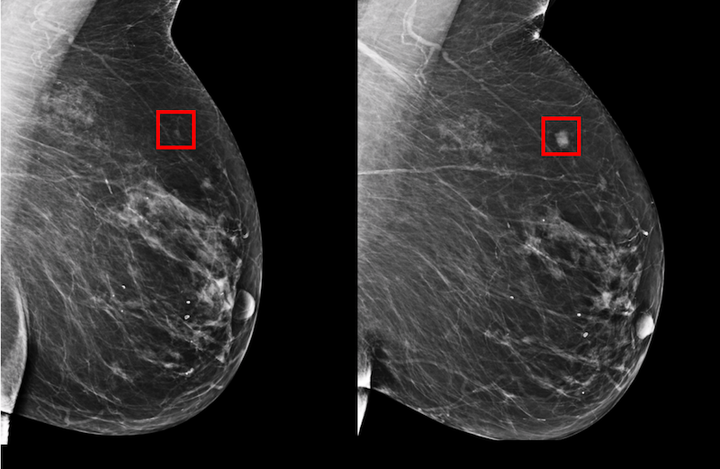A Deep Learning Mammography-based Model for Improved Breast Cancer Risk Prediction

Abstract
This retrospective study included 88 994 consecutive screening mammograms in 39 571 women between January 1, 2009, and December 31, 2012. For each patient, all examinations were assigned to either training, validation, or test sets, resulting in 71 689, 8554, and 8751 examinations, respectively. Cancer outcomes were obtained through linkage to a regional tumor registry. By using risk factor information from patient questionnaires and electronic medical records review, three models were developed to assess breast cancer risk within 5 years: a risk-factor-based logistic regression model (RF-LR) that used traditional risk factors, a DL model (image-only DL) that used mammograms alone, and a hybrid DL model that used both traditional risk factors and mammograms. Comparisons were made to an established breast cancer risk model that included breast density (Tyrer-Cuzick model, version 8 [TC]). Model performance was compared by using areas under the receiver operating characteristic curve (AUCs) with DeLong test (P < .05).